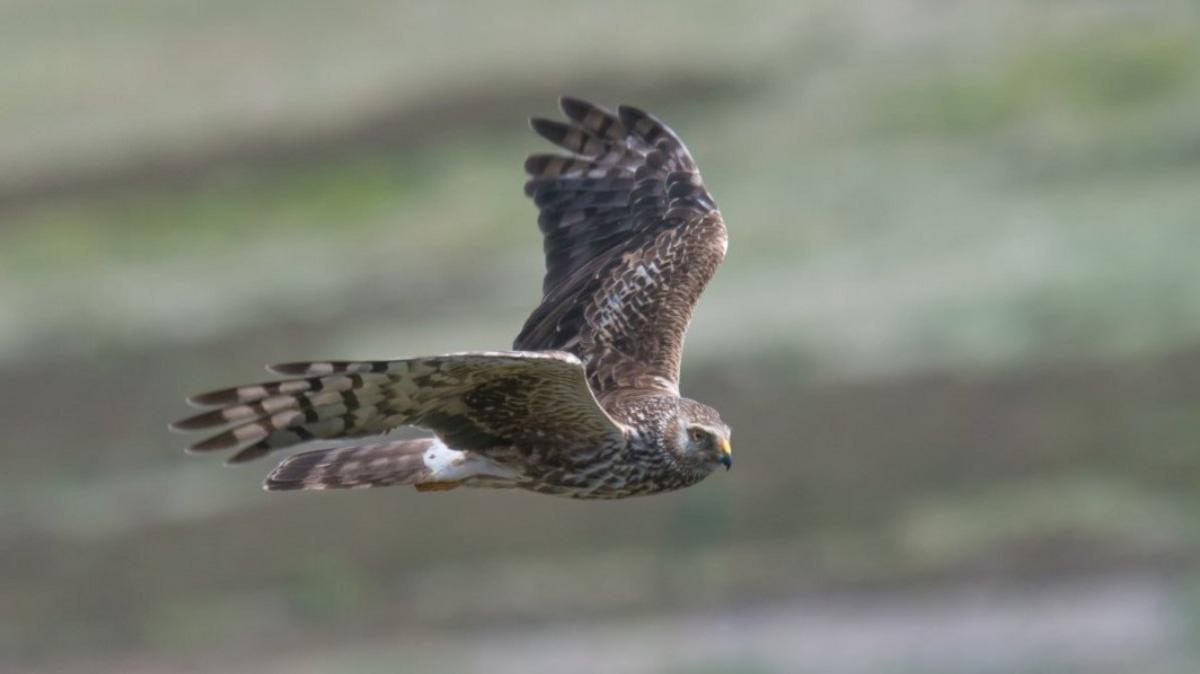Record year for hen harriers at RSPB reserve
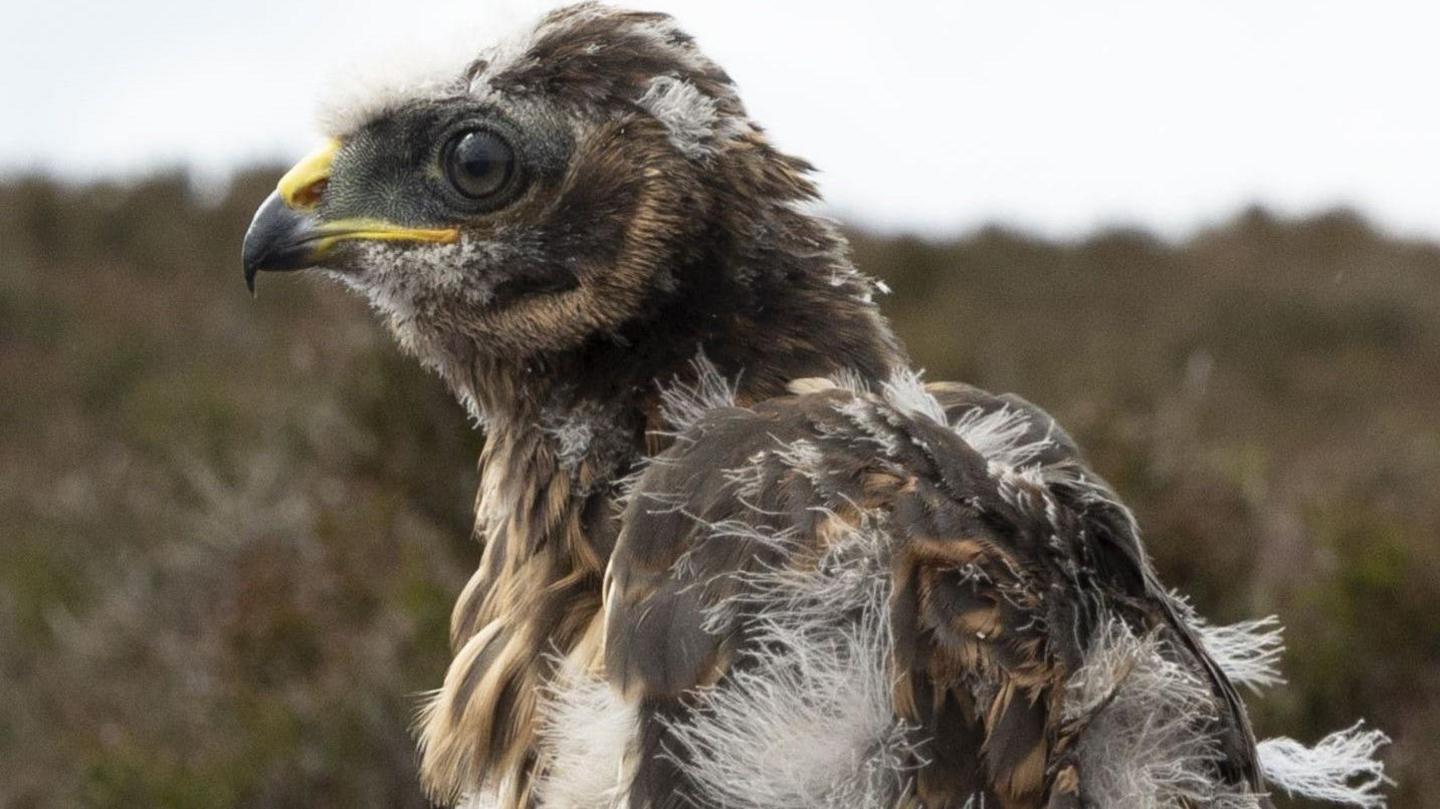
Two pairs of hen harriers each produced four chicks and one of the pairs, including a satellite-tagged female, also bred in 2023
- Published
An RSPB nature reserve has seen eight hen harrier chicks fledge, the highest number since the 1990s.
Staff and volunteers worked around the clock to protect the nests at Geltsdale, near Brampton, Cumbria.
Teams worked in shifts, concealing themselves and watching the nests with thermal binoculars at night, to ensure the birds were not disturbed.
Mike Shurmer, RSPB England’s head of species, said: "It is wonderful news and testament to the continuing efforts of our dedicated staff and volunteers".
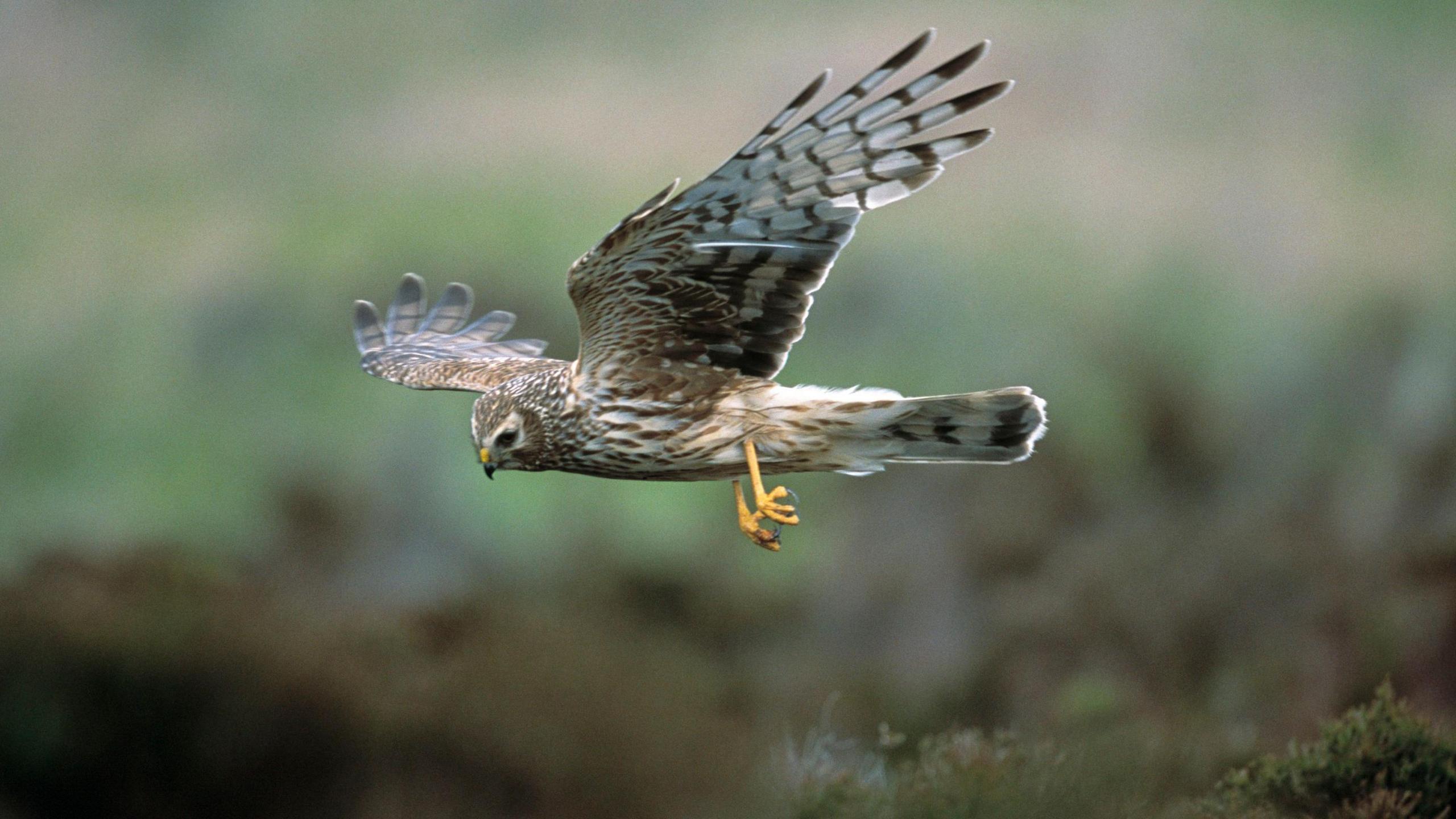
While some parts of the UK have seen increases in the number of hen harriers in recent years, the RSPB says their future still hangs in the balance
"With the numbers of hen harriers continuing to remain far below where we would expect healthy populations of these birds to be in England, seeing a good number of young hen harriers fledge at Geltsdale this year gives us hope for the coming years," he added.
Two pairs each produced four chicks and one of the pairs, including a satellite-tagged female, also bred in 2023.
The RSPB is monitoring a pair of youngsters, known as Gill and Wardrew, with satellite tags, to learn about where they roam and to keep track of their development.
This year's season is also the first time since 2006 a mature grey male has successfully reproduced at the reserve.
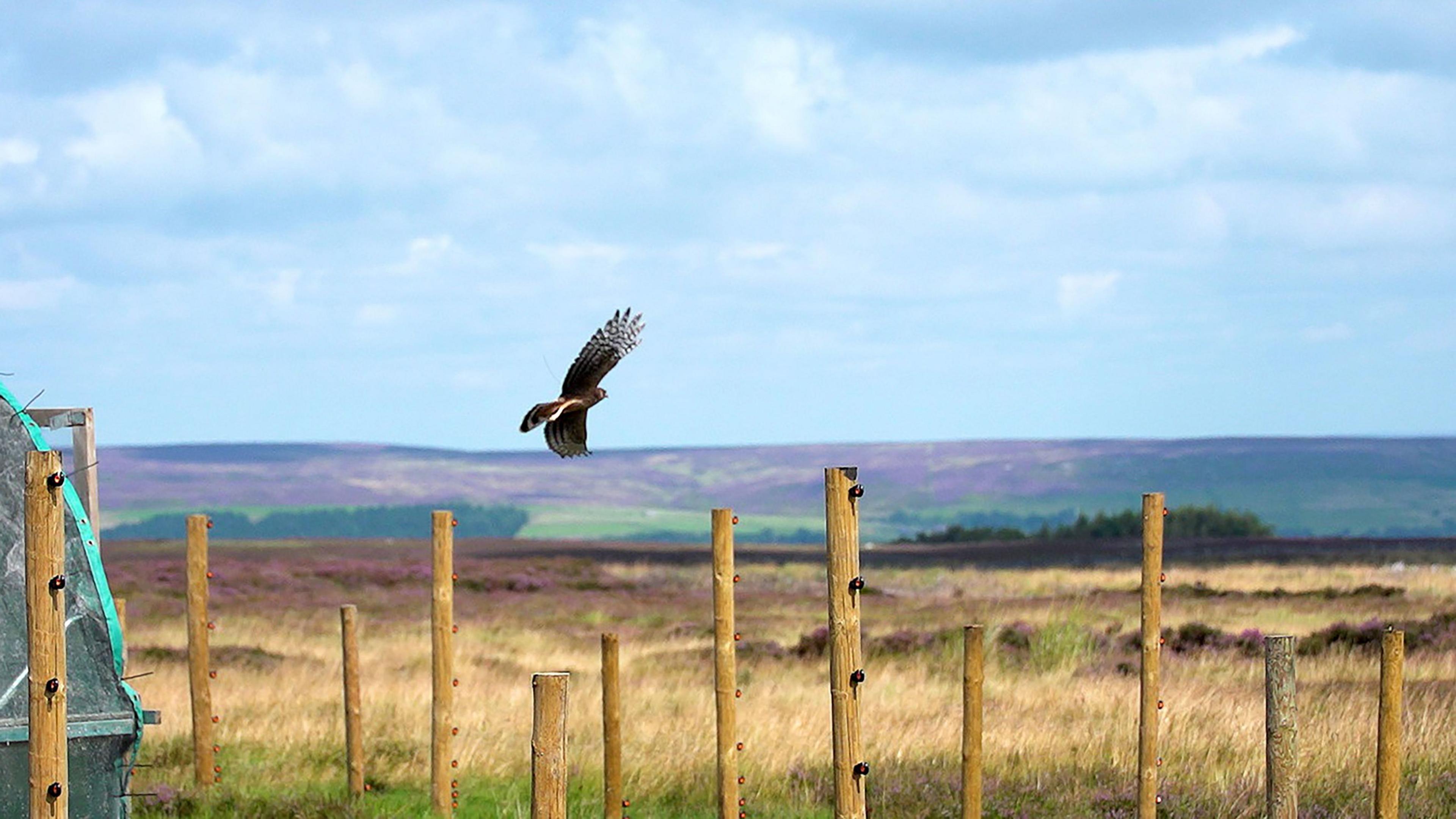
Hen harriers have been released into the wild by Natural England in a bid to increase their numbers
The RSPB said hen harriers remained subject to "intense persecution associated with grouse shooting" in the England uplands.
In 2023, across the UK, the charity claimed a total of 34 hen harriers "suspiciously disappeared or were confirmed to have been persecuted", including 29 satellite-tagged and five untagged hen harriers.
The Moorland Association, which represents grouse moor managers, dismissed the RSBP's claims connected to grouse shooting.
Andrew Gilruth, chief executive, said he was disappointed the charity had not acknowledged the work done by the government's Department for Environment, Food and Rural Affairs.
Its plan to boost the hen harriers population, Mr Gilruth added, was done largely with help from gamekeepers.
He said: "Driven grouse moors have more harrier nests than all the RSPB nature reserves combined and Geltsdale are beneficiaries of this."
Follow BBC Cumbria on X, external, Facebook, external, Nextdoor, external and Instagram, external. Send your story ideas to northeastandcumbria@bbc.co.uk.
More stories from BBC North East and Cumbria
- Published10 April 2024
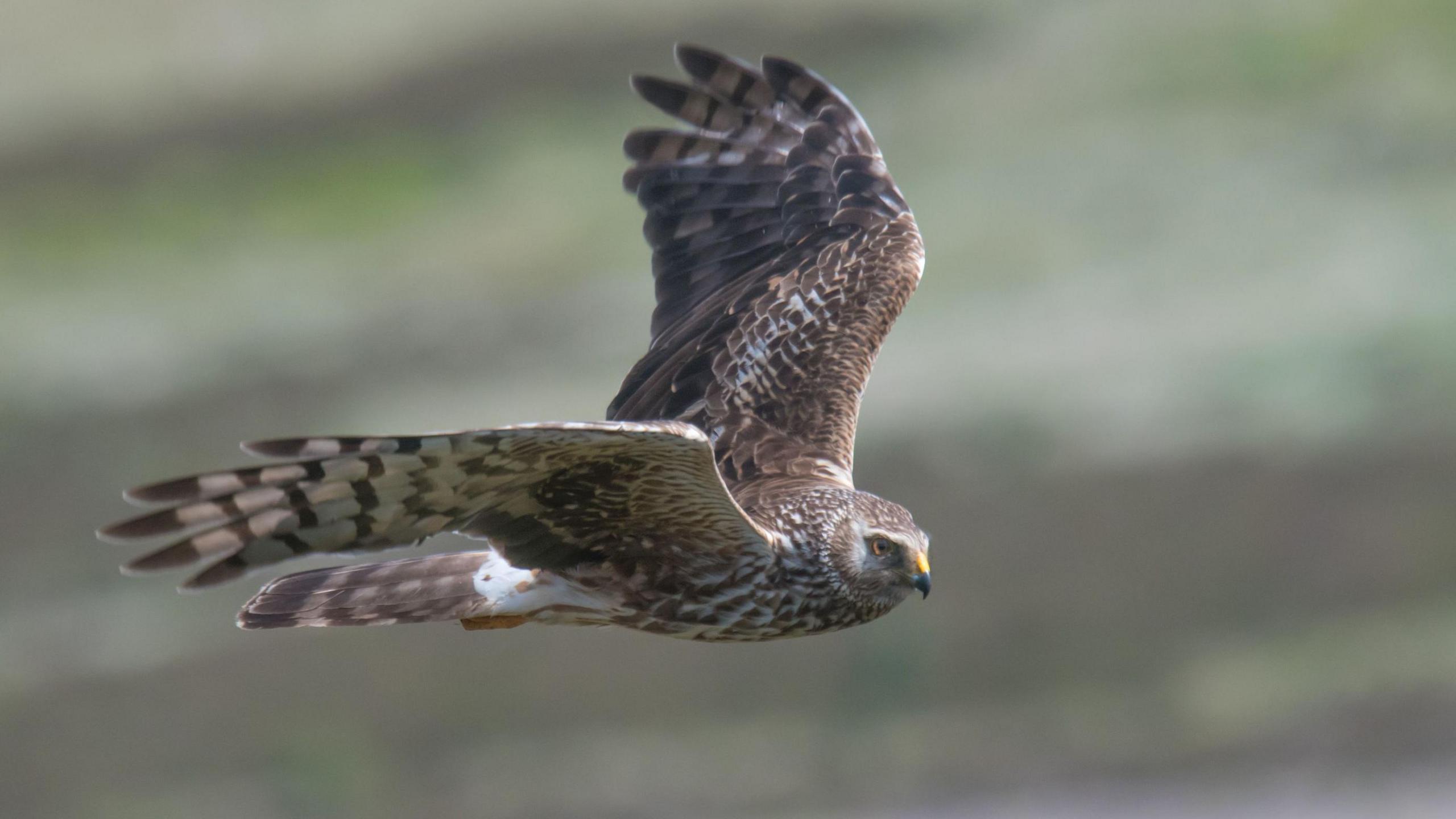
- Published18 August 2023
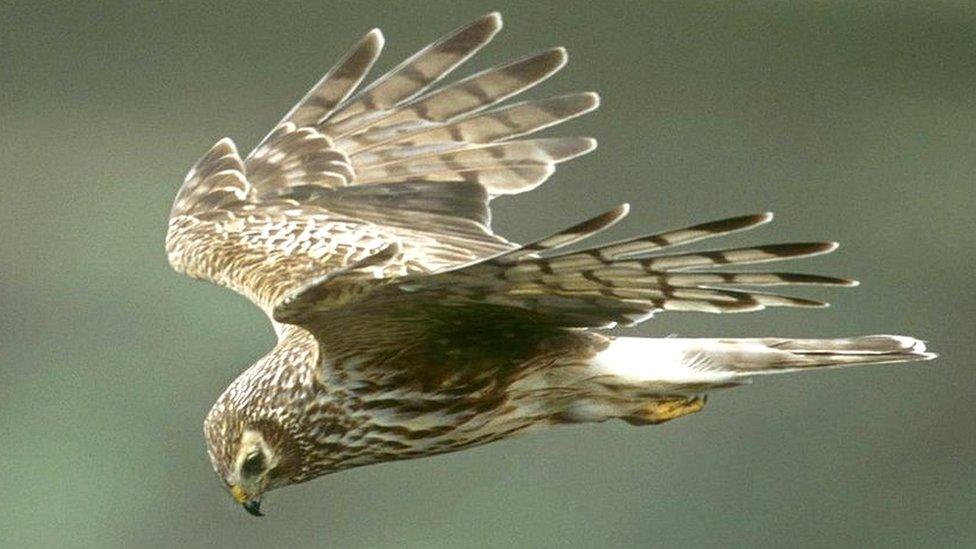
- Published5 May 2023
